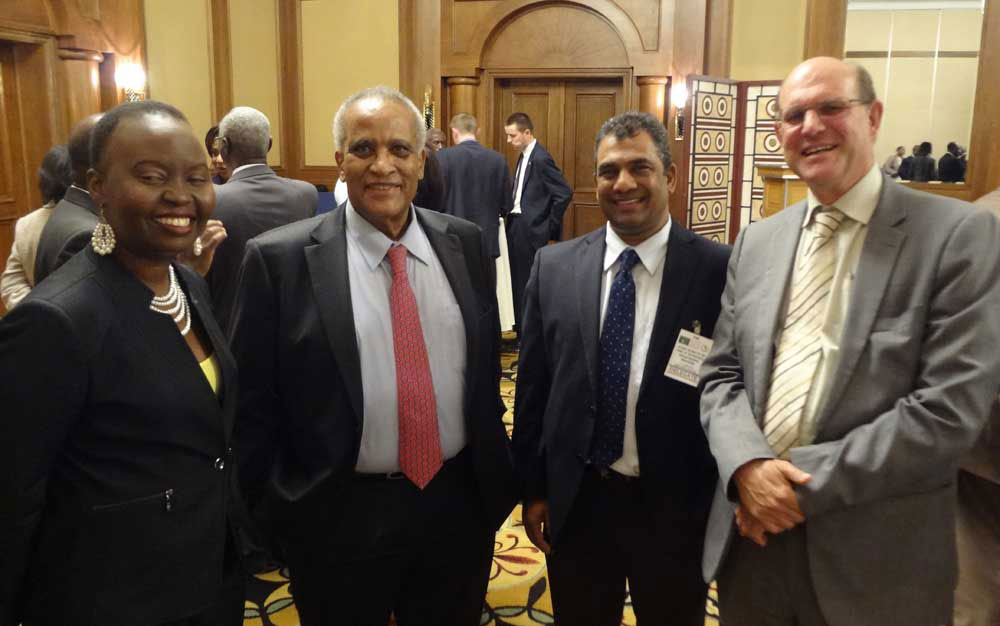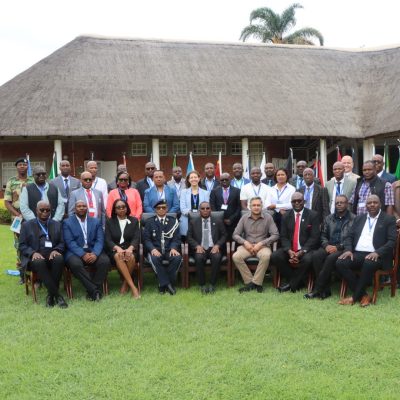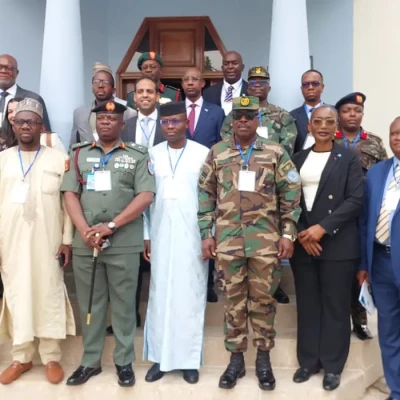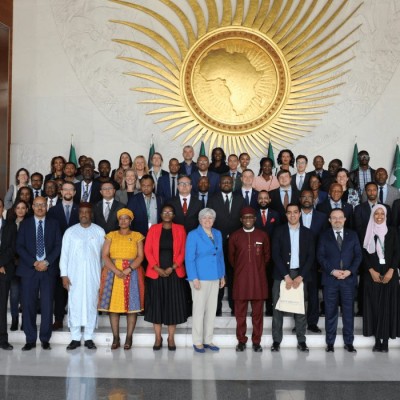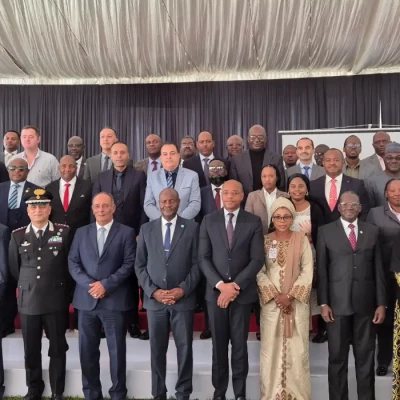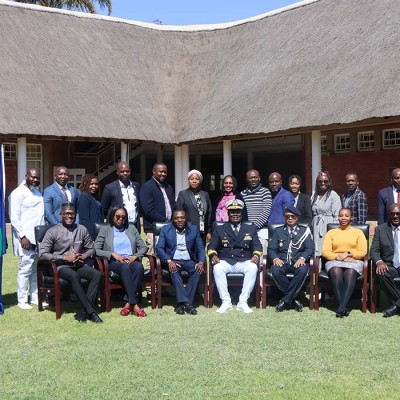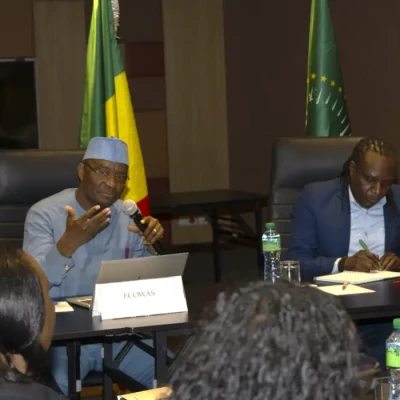The TfP Programme is now in its fourth phase of implementation, 2011–2015, and is guided by a strategic framework and goal hierarchy which place emphasis on contribution to the development of sustainable capacity within the UN, AU and RECs/ RMs for peace operations on the continent. Since its inception in 1995, it has taken action in the following areas, and continues to do so.
Provision of Relevant and High-Quality Training
In its earlier phases, the TfP Programme at ACCORD (TfP/ACCORD) conducted pre-deployment/foundation training courses through its flagship Civilian Peacekeeping and Peacebuilding Courses (CPPC), for potential peacekeepers to prepare them for deployment in AU and UN peace operations. The Programme recognised that it had limited control over the deployment of its trainees to AU and UN peace operations. However, the need for increased capacity and capability development among civilian peacekeeping personnel was still important. Thus, the Programme reoriented its training objectives to focus on in-mission training to ensure that personnel already deployed in peace operations are effectively trained and skilled to implement peacekeeping mandates.
Consequently, the Peacekeeping Unit and its TfP Programme has focused its conflict management training to equip existing Civil Affairs Officers with additional and necessary tools that will enhance their capability and level of professionalism in the daily conduct of their work. The in-mission Conflict Management Course for Peacekeepers and Peacebuilders is a combination of the Unit’s specialised focus on peacekeeping with the organization’s specialised knowledge and experience in conflict management. It is aimed to impart conflict management skills in the form of negotiation, mediation and facilitation, to UN and AU peacekeepers. Recognising the need for tailored training to fit the specific context of each field mission, the Peacekeeping Unit and its TfP Programme adapted its conflict management course curriculum to fit the specific context of the specific mission it conducts training.
The Peacekeeping Unit and its TfP Programme also supports African Regional Peacekeeping Training Centres in developing civilian and multidimensional capacities (at the continental and regional levels). This is done through the Unit and Programme’s contribution to pre-deployment, specialised and senior mission leaders’ training courses conducted by these centres to contribute towards building sustainable African capacities and capabilities for peace operations on the continent; noting the relevance of these skills in field mission settings.
Contribution to the Establishment of Well Functioning Recruitment and Roster System
The Peacekeeping Unit and its TfP Programme’s support to the AU on the ASF, since the inception of the ASF civilian dimension project in 2006, has been on Staffing, Training, Rostering and Recruitment (STRR). The was aimed at ensuring the conceptualisation and implementation of a comprehensive approach for the development of the civilian dimension of the ASF from the onset. Since the Peacekeeping Unit and its TfP Programme’s main focus has been on training, policy development and research, it has contributed to the training and preparation of civilian personnel for Map, Command Post and Field Training Exercises organised by the Regional Standby Forces (RSFs) to test their capacities and capabilities. The Peacekeeping Unit and its TfP Programme has also developed relevant policies including the ASF civilian dimension policy framework, an ASF civilian roster model, and 60 ASF civilian job descriptions and seconded the former Head of the Peacekeeping Unit and TfP Programme to facilitate the civilian dimension process at the AU Peace Support Operations Division (PSOD). The Programme’s support to the rostering and recruitment processes remains supplementary to its core contributions to the ASF development processes. Thus, the Peacekeeping Unit and its TfP Programme tracks and monitors the utilisation of the ASF civilian job descriptions as the terms of reference for identifying personnel for the ASF Roster at the Member States and sub-regional levels for deployments of civilians for future AU peace operations.
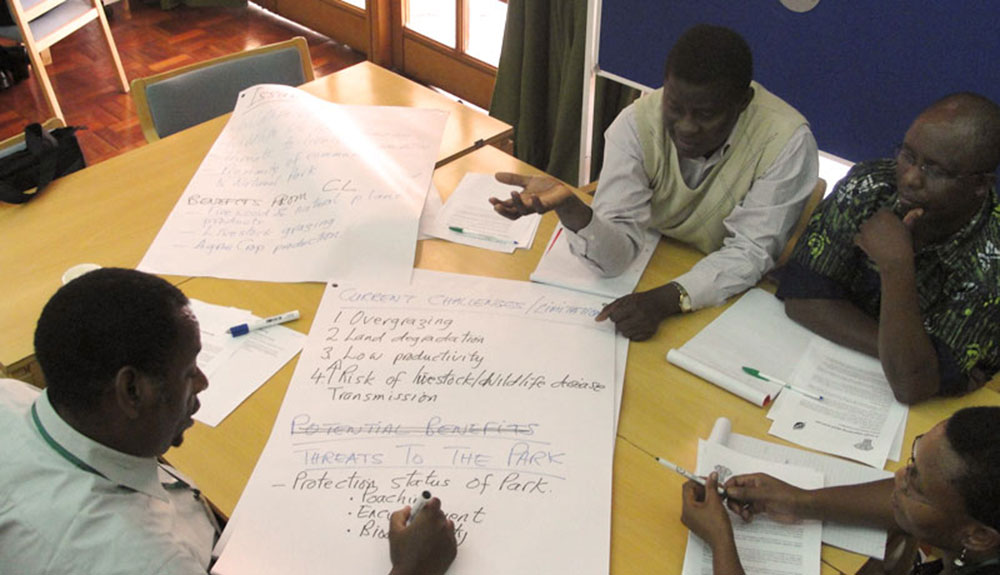
Contribution and Support to the Development of Relevant Policy Frameworks and Guidance for the UN, AU, REC/RMS
The Peacekeeping Unit and its TfP Programme’s support to the AU PSOD is focused on developing key policies that will provide strategic direction for the development and establishment of the ASF civilian dimension/component, and subsequently, a multidimensional ASF. It also focuses on contributing towards better implementation of AU current peace operations. This is being done through support to the AU in developing an AU Conduct and Discipline and PoC Policy specific to AU contexts and in supporting AMISOM and UNAMID in their initiatives. At the UN level, the Peacekeeping Unit and its TfP Programme’s support has been towards ensuring better strategic guidance on key peacekeeping issues that forms part of current peacekeeping mandates and/or that will contribute to more successful implementation of peacekeeping mandates. An instance of this relates to the Peacekeeping Unit and its TfP Programme’s support to the UN DPKO in the development of a strategic framework for PoC that urges UN missions to develop their mission-specific PoC strategies that will ensure better implementation of PoC mandate in the field. Other instances relates to the provision of support towards the development of the Civil Affairs Handbook and contribution towards the achievement of a common understanding of the peacekeeping-peacebuilding nexus as well as the implementation of the UN review of civilian capacities process.
Conduct Relevant and High Quality Research
The Peacekeeping Unit and its TfP Programme’s research is focused on analysis and assessment of the current status of the field to better shape its training and policy development initiatives and approaches. It generates reflection and offers greater clarity of realities and needs in the field through mission tracking and assessment. This informs and contributes to the Peacekeeping Unit and its TfP Programme’s training and policy development initiatives. Key research themes of focus include the civilian dimension of peacekeeping, PoC, and the peacekeeping-peacebuilding nexus to generate better and clearer understanding of these issues and put forward recommendations for policy and practice. The Peacekeeping Unit and its TfP Programme publishes outcomes of its research and experiences utilising ACCORD’s publications:
Women, Peace and Security – SCR 1325
The Peacekeeping Unit and its TfP Programme is committed to the development of policies that fosters the implementation of UNSCR 1325/1820 and other cross cutting issues related to women, peace and security. The Programme contributes towards the implementation of the Durban Statement on UNSCR 1325, an outcome of the October 2010 ACCORD/AU High-level Seminar on the theme, ‘United Nations Security Council Resolution 1325 in 2020: looking forward… looking back’. The Durban Statement guides the Unit’s focus on the implementation of the UNSCR 1325 for mainstreaming gender in its work.
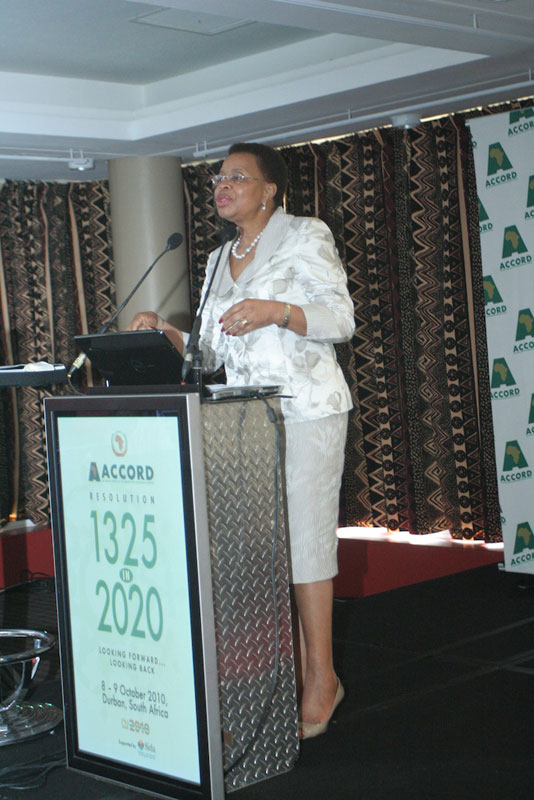
Networking
The Peacekeeping Unit and its TfP Programme continues to be an active member of the African Peace Support Trainers Association (APSTA) and the International Association of Peacekeeping Training Centres (IAPTC) which are crucial network forums to promote issues that are on the African and global peace operations agenda; as well as broaden the understanding of the civilian aspects of peace operations within the international peacekeeping training community.
